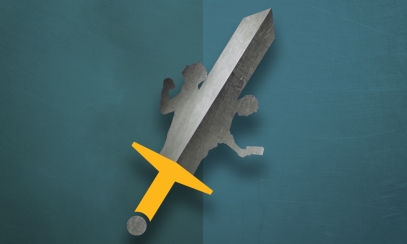Ecumenical experiences
Our faith-filled Protestant friends
Our faith-filled Protestant friends
In April of 1982, the Michigan Council of Churches was folding; and the Catholic bishops of the state were invited to a consultation in Grand Rapids for input towards the formation of a new coalition that would include Catholics as well as mainline Protestants. From this meeting two new organizations were born: the Michigan Ecumenical Forum (MEF) and the Michigan Church Leaders (MCL). My association with the latter these 18 years has provided the most enriching ecumenical experiences of my lifetime.
Michigan has 29 church “judicatories.” The term is ecumenical jargon for denominational sub-groups. We have dioceses; the orthodox have eparchies; mainline Protestants have districts, synods, presbyteries, conferences and classes, etc. The MCL comprises bishops, presidents, district superintendents, executive presbyters, and whatever other titles, who exercise oversight over groups of local churches.
The MCL has been meeting twice a year, in April-May and October-November, since 1982. The largest attendance I can recall at any one time was 19 of the 29 judicatory heads; and, until cancer hit me, I attended all of them. At first the meetings rotated among conference facilities in southeastern Michigan, but for a dozen years now MCL has met at our St. Francis Retreat Center in DeWitt by unanimous consent. The meetings last overnight, which gives ample time for informal conversation, as well as for discussion of formal papers that are presented and for a variety of prayer experiences.
Over the years I have learned much about Protestant Christianity and formed firm friendships with some of these leaders. Methodist Bishop Edsel Ammons of Detroit made me think the 93 parishes for which I was responsible was a piece of cake; with the help of his district superintendents he had 920 churches to look after. The Rev. Brad Rohwers of Kalamazoo shared with all of us the Presbyterian charism of decency and strict order in the administration of church goods. From Episcopal Bishop Edward Lee of their Diocese of Western Michigan I tried to learn how Episcopalians trained their people to walk with such dignity in the TV processions I had watched.
Bishop Reginald Holle, Lutheran bishop of most of the Lower Peninsula, had Alpena, Bay, Presque Isle and Saginaw Counties in his jurisdiction. We hit it off well because I was very familiar with those places. The Rev. James Kinsey of Lake Odessa headed the Church of the Brethren, one of the historic “peace churches;” he never missed a meeting or let us forget that Jesus is the Prince of Peace. The Rev. Clarence Boomsma of Grand Rapids represented the Christian Reformed Church and became a good friend of mine from theological positions both of our churches hold.
These Christian leaders shared a lot of concerns with us Catholic bishops: We had priests who wanted to marry, they had ministers who wanted to divorce; we envied their youth programs, they wished they had fired-up laymen like our Knights of Columbus; they showed a new interest in liturgical worship, we wondered how we could get our people to sing as fervently as theirs did.
We learned to understand one another, to respect one another, and to pray for one another. And I can assure you from these experiences that your Protestant friends and neighbors have faith-filled church leaders.



